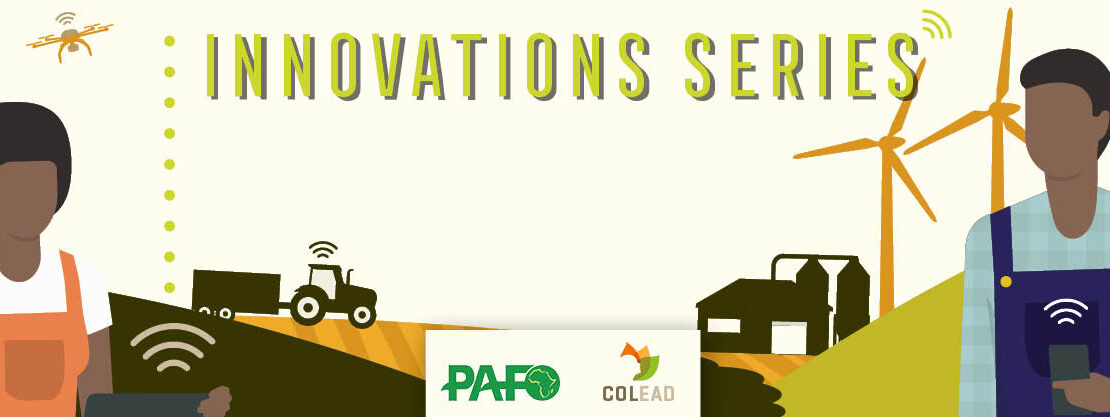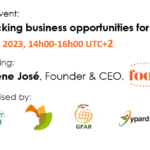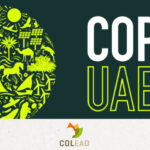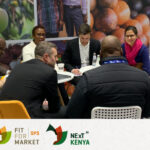(Re-)Discover the producers’ and SMEs innovations in agroecology presented at the PAFO-COLEAD Innovations Session n°13
- 17/05/2023
- Posted by: Gaetan Dermien
- Category: ACP EN, Corp EN, News

On 10 May, COLEAD and PAFO convened the Innovations Session n°13 that focused on producers’ and SMEs innovations in agroecology for sustainable agrifood systems. Four inspiring farmers and entrepreneurs presented how their agrifood activities and businesses support agroecology and sustainability. The first panel was followed by the presentations of two African support organisations and of their successes with agroecological practices on the field.
The online session – available in English, French and Portuguese – gathered 250 participants and was again an opportunity for agrifood stakeholders from across the globe to connect, share opportunities and start discussions that go beyond the session.
Peer to peer learning and exchange of best practices are the core of the Innovations Sessions. During the session n°13, panellists have shared how they contribute to agroecological transitions and what innovations they are developing which could inspire others.
Robin Ndung’u (Founder and CEO) started the conversation by presenting Kisumeo Organics Limited. The youth-led farming business in Kenya operates across multiple aquatic value chains (i.e. crawfish, shrimp/prawn, lobster). It also processes crawfish flesh and shells respectively into crawfish powder and livestock feed. The company further ensures that small scale farmers are informed on best uses of climate smart technologies. It is facilitating links to training on crawfish farming, securing reliable markets for products and managing logistics for out growers, of whom are majority women and youth, through its franchise system.
Tanzanian company AgriLife Limited transforms organic waste into animal feed and organic fertiliser utilising the Black Soldier Fly. Costantine Edward (Co-founder and Managing Director) explained that the Black Soldier Fly is a rich source of protein and essential amino acids for animal feeds, thus boosting animal productivity. With 70% of the world’s soy production being dedicated to feed animals, AgriLife Limited is offering a sustainable alternative to animal feed that is more accessible and affordable in comparison to conventional feeds, and which has less of an environmental impact.
Ella Inzahbo (Founder) presented the women’s cooperative AGROTECH that specialises in the producing, processing and marketing of agricultural products. The cooperative uses and promotes agroecological practices to improve its members’ livelihoods, focusing specifically on women and youth and their efforts to strengthen food security and drive sustainable development. This includes selecting seeds that are adapted to climate change by taking into account their conservation and sustainability, as well as producing and using compost to enrich soils.
Edmond Ng’walago (Founder and CEO) presented Ngwala Inventions, a Tanzanian company making organic farming more profitable to over 200,000+ smallholder East African farmers. Using a solar powered organic pesticides and fertiliser dispensing system, Ngwala Inventions is combatting the high costs and variability in prices of chemical pesticides and fertilisers. At the same time, it addresses problematic chemical exposures associated with their usage. Through a Mobile App, farmers can also track the performance of their crops and monitor any deficiencies.
To complement the presentations made by African entrepreneurs, the second panel of speakers was comprised of experts who are promoting agroecology within their organisations, to better support the stakeholders involved in scaling good practices.
Rosinah Mbenya (Country Coordinator) outlined the efforts of Participatory Ecological Land Use Management (PELUM) Kenya in promoting agroecological principles and practices among member organisations. Rosinah highlighted how the practices of PELUM Kenya members contribute to diversification and the circular economy; soil health; input reduction; integrated pest management; participation, co-creation and sharing of knowledge; biological synergies; recycling and efficiency; culture and food traditions; land and natural resource governance; and responsible governance.
Koudasse Afantchawo (President) discussed the actions of ROPPA Youth College concerning agroecology training and supporting youth and women. Through its national platforms in Togo, ROPPA has developed several training centres and agroecological farms which combine classroom and field work settings dedicated to teaching agroecological practices for plant and livestock production and to encouraging farmer-to-farmer learning.
The recording of this session (and others) is available in English, French and Portuguese on COLEAD’s YouTube channel.
This session was supported by the Fit For Market Plus programme, implemented by COLEAD within the framework of Development cooperation between the Organisation of African, Caribbean and Pacific States (OACPS), and the European Union (EU).
This publication has been produced with the financial support of the EU and the OACPS. Its contents are the sole responsibility of COLEAD and can under no circumstances be regarded as reflecting the position of the EU or the OACPS.



